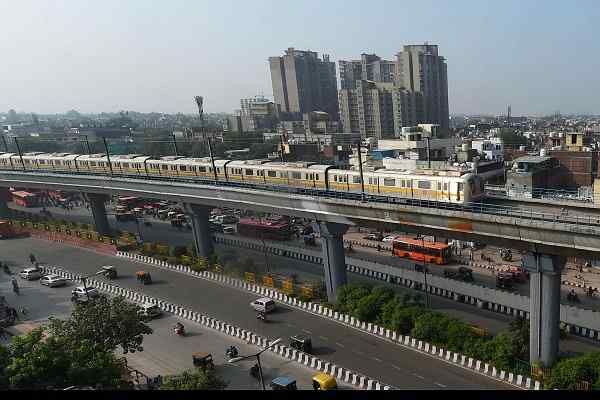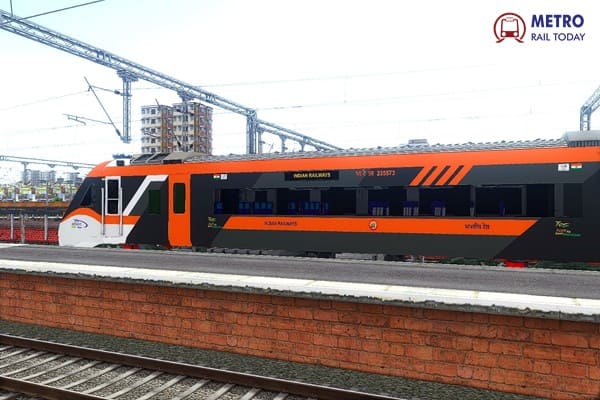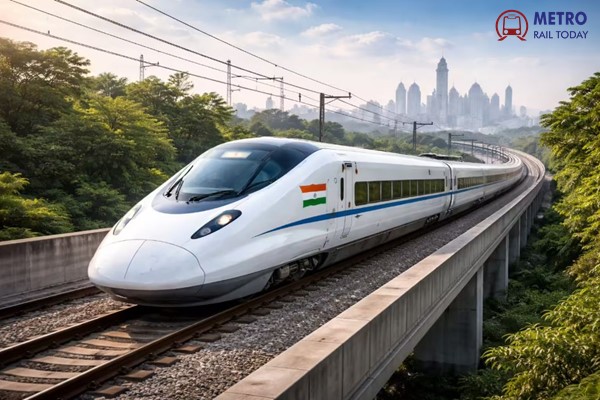 The ₹1.98 Lakh Crore Masterclass: Why India’s High-Speed Rail is a Price Worth Paying
The ₹1.98 Lakh Crore Masterclass: Why India’s High-Speed Rail is a Price Worth Paying Mumbai–Ahmedabad Bullet Train project cost escalated from ₹1.1 lakh crore to ₹1.98 lakh crore
Mumbai–Ahmedabad Bullet Train project cost escalated from ₹1.1 lakh crore to ₹1.98 lakh crore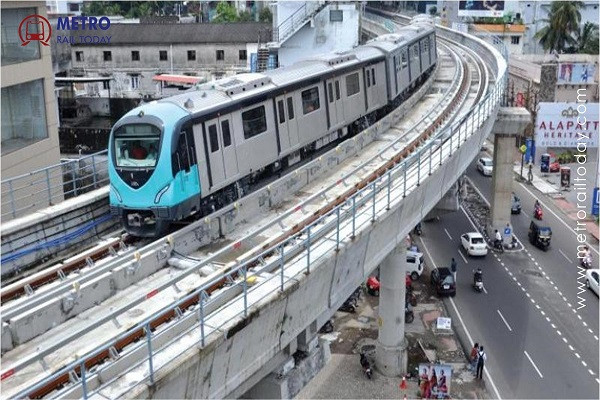 L&T Technology Services wins ₹95.3 crore Telecom Contract for Kochi Metro Phase 2
L&T Technology Services wins ₹95.3 crore Telecom Contract for Kochi Metro Phase 2 Mumbai–Ahmedabad Bullet Train Project achieves breakthrough with First Mountain Tunnel completion
Mumbai–Ahmedabad Bullet Train Project achieves breakthrough with First Mountain Tunnel completion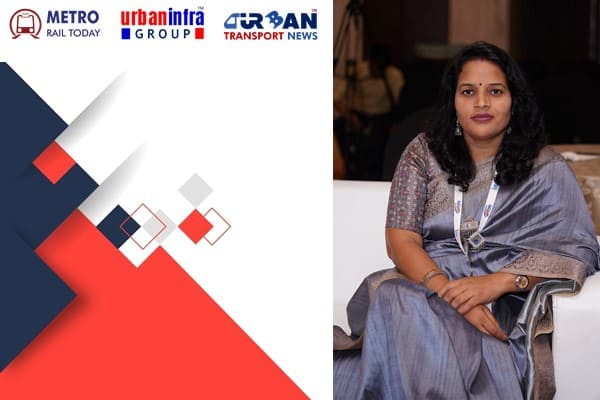 Happy New Year 2026: Message from the desk of Managing Editor - Metro Rail Today
Happy New Year 2026: Message from the desk of Managing Editor - Metro Rail Today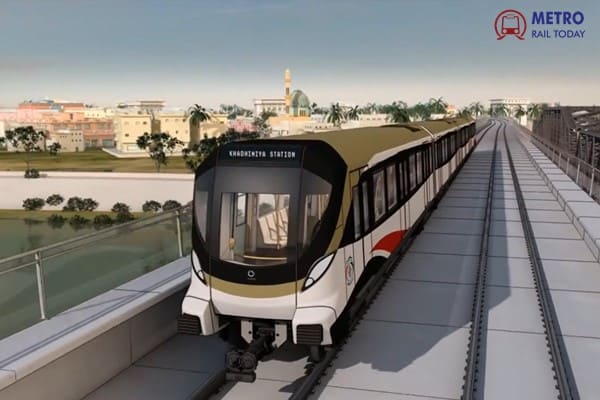 Baghdad Metro project enters at an advanced planning and implementation stage
Baghdad Metro project enters at an advanced planning and implementation stage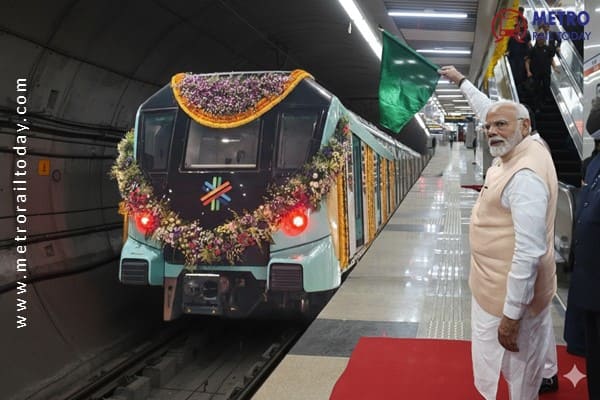 India's Rail & Metro Year-End Review 2025: A Year of Accelerated Execution and Visible Outcomes
India's Rail & Metro Year-End Review 2025: A Year of Accelerated Execution and Visible Outcomes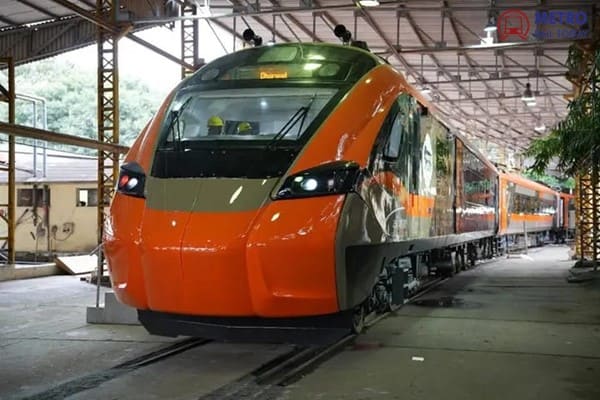 Indian Railways plans to manufacture eight additional sleeper rakes by March 2026
Indian Railways plans to manufacture eight additional sleeper rakes by March 2026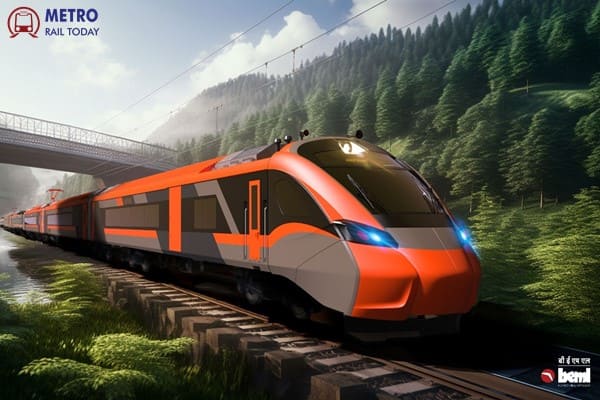 BEML sets timeline for production of high speed trainsets for India's first Bullet Train project
BEML sets timeline for production of high speed trainsets for India's first Bullet Train project Dr. Vinod Shah appointed First Director General of the Chamber of Railway Industries
Dr. Vinod Shah appointed First Director General of the Chamber of Railway Industries
Mumbai’s Rail Network set for ₹15,000 Crore overhaul with Dedicated Suburban Rail Corridors
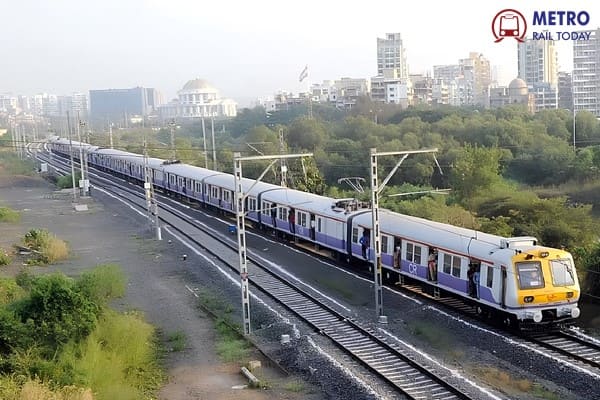
Mumbai, India (Metro Rail Today): In a landmark infrastructure move poised to redefine rail travel in Mumbai and its metropolitan region, the Ministry of Railways has greenlit an ambitious ₹15,000 crore plan to develop dedicated suburban and freight corridors across the city and adjoining regions.
The initiative aims to ease congestion on Mumbai’s heavily burdened rail corridors, enhance commuter experience, and streamline freight operations—all while paving the way for high-speed, high-frequency train services in the near future.
Two Dedicated Corridors: One for Passengers, One for Freight
The project includes the creation of two new rail corridors:
-
Dedicated Suburban Passenger Corridor
-
Will significantly reduce the load on existing Central and Western lines
-
Enable high-speed EMU operations with improved punctuality
-
Designed to integrate with future metro and RRTS networks
-
-
Dedicated Freight Corridor
-
Will divert long-distance goods traffic away from passenger lines
-
Help decongest Mumbai’s arterial stations like Kurla, Kalyan, and Vasai
-
Enhance port connectivity and logistics efficiency for JNPT and other industrial hubs
-
The corridors are part of a long-term strategy to separate passenger and freight traffic, a model already in use on select national routes under the Dedicated Freight Corridor Corporation of India (DFCCIL).
Decongesting the Lifeline of Mumbai
Mumbai’s suburban rail system is the city’s lifeline, carrying over 7.5 million passengers daily—more than any other city in the world on a per-kilometre basis. Yet, the overuse of shared tracks by both freight and passenger trains has led to delays, overcrowding, and operational inefficiencies.
The dedicated corridors will:
-
Improve service frequency and reduce delays
-
Enhance safety through fewer conflicts at junction points
-
Enable introduction of faster, more comfortable rolling stock
Mrs. Mamta Shah, MD & CEO of Urban Infra Group, hailed the project as a paradigm shift, “Separating freight and suburban rail services is long overdue in Mumbai. This strategic investment will not only decongest platforms and tracks but will also bring in system reliability and unlock new potential for high-speed and semi-high-speed commuter rail in MMR. It’s a visionary move for a city that runs on rail.”
Funding, Implementation & Timeline
The ₹15,000 crore project will be executed by the Railway Board, with support from agencies such as Mumbai Railway Vikas Corporation (MRVC), Western and Central Railways, and in coordination with state authorities.
Funding is expected to be sourced from:
-
Budgetary support from the Government of India
-
Multilateral institutions like JICA and ADB
-
Public-Private Partnerships (PPPs) for specific sub-projects
Preliminary design and feasibility studies have been initiated, and tendering is expected to begin in mid-2026, with commissioning planned in phases from 2029 onwards.
Transforming Mumbai’s Mobility Future
This ambitious corridor project is part of a broader effort to reimagine Mumbai’s multimodal transport ecosystem, which includes Metro, Monorail, RRTS, and Bus Rapid Transit systems.
When fully operational, the dedicated corridors will:
-
Enable faster east-west and north-south movement
-
Free up capacity for long-distance express trains
-
Improve resilience during monsoons and peak-hour surges
By reshaping how railways function in the Mumbai Metropolitan Region (MMR), the corridors will drive productivity, reduce travel times, and improve the overall quality of life for millions of daily commuters.





